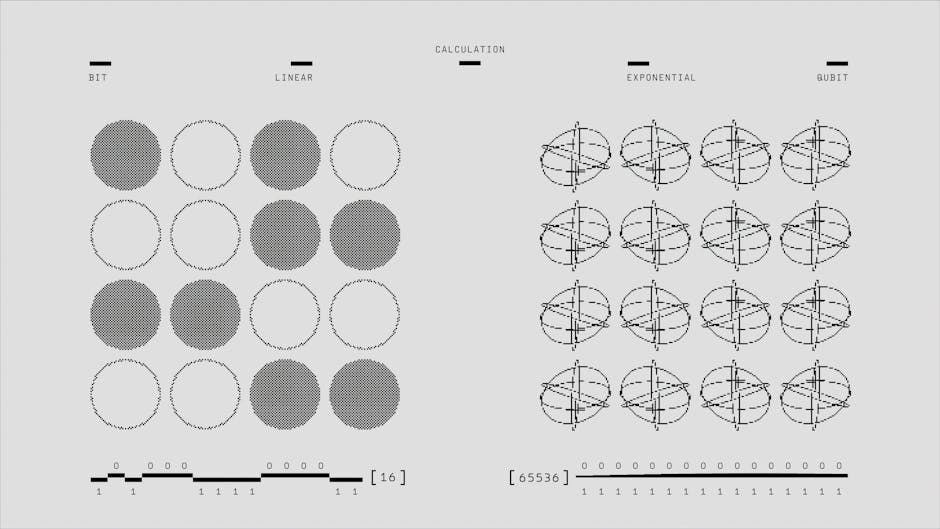The probabilistic nature of quantum mechanics, where outcomes of experiments are described by probabilities rather than certainties, is a defining characteristic. This contrasts sharply with classical physics, which portrays a deterministic universe. A crucial consequence of this probabilistic behaviour is the inherent uncertainty principle, articulated by Heisenberg. This principle dictates that certain pairs of physical properties, like position and momentum, cannot be simultaneously known with arbitrary precision. This fundamental limitation has far-reaching consequences. It suggests that the act of observation itself plays a role in shaping the observed system, forcing us to reconsider the traditional observer-independent reality.
A pivotal implication is the quantum superposition principle. This principle allows quantum entities to exist in multiple states simultaneously until a measurement forces a collapse into a single state. This seemingly paradoxical concept has profound implications in quantum computing, allowing qubits to hold multiple values simultaneously, potentially revolutionizing computation. Furthermore, this superposition allows for quantum phenomena like entanglement.
Entanglement, another profound consequence, describes a correlation between two or more quantum systems, regardless of the distance separating them. Measuring a property of one entangled particle instantaneously affects the corresponding property of its entangled partner. This ‘spooky action at a distance,’ as Einstein famously called it, challenges our classical notions of locality and causality. Entanglement’s implications span from the development of quantum communication protocols, allowing for secure transmission of information, to the creation of quantum networks that promise unprecedented levels of interconnectedness.
The implications of quantum mechanics transcend the microscopic realm. Quantum effects play a crucial role in many macroscopic phenomena. For instance, the colours of gemstones and the conductivity of various materials are fundamentally rooted in quantum mechanics. The behaviour of electrons within atoms dictates chemical bonding, the foundation of all chemistry and biology. Quantum tunneling, a phenomenon where particles can pass through energy barriers seemingly impossible classically, is essential in many chemical reactions. These quantum principles govern the stability of molecules, the structure of solids, and thus, the architecture of the entire material world.
In chemistry, the quantum mechanical model of the atom, built on Schrodinger’s equation, explains the periodic table and the chemical properties of elements. Molecular structures and interactions are precisely predicted by quantum mechanics. This is critical in areas such as drug design, materials science, and catalysis. In the development of new materials, an understanding of quantum mechanical principles is vital. Advanced materials with unique properties, like high-temperature superconductors and quantum dots, are a testament to the practical application of these principles.
Beyond the realm of materials, quantum mechanics is crucial for cosmology. Understanding the early universe demands a quantum description of gravity. The nature of dark matter and dark energy, which constitute most of the universe’s content, remains a puzzle. Quantum effects likely play a role in these phenomena, despite the lack of a complete quantum theory of gravity. Attempts to reconcile quantum mechanics with general relativity are ongoing, with string theory and loop quantum gravity emerging as leading contenders.
Quantum mechanics also holds the key to unlocking the secrets of the fundamental forces. The Standard Model of particle physics, a framework for classifying and understanding elementary particles and their interactions, relies heavily on quantum mechanics. The nature of fundamental forces, like electromagnetism and the strong and weak nuclear forces, is intrinsically tied to quantum concepts. The theoretical development of quantum field theory, an extension of quantum mechanics, is fundamental to comprehending these forces and their interactions.
Moving forward, quantum mechanics offers unprecedented possibilities in computation. Quantum computers leverage the unique properties of quantum systems, potentially solving problems intractable for even the most powerful classical computers. Applications range from drug discovery and materials science to financial modelling and cryptography. Quantum algorithms are designed to harness the potential of superposition and entanglement for computation, opening a new frontier in information technology.
A fundamental concern stemming from quantum mechanics is its philosophical implications. Interpretations of quantum mechanics, like the Copenhagen interpretation, the Many-Worlds interpretation, and others, often lead to debate about the nature of reality, the role of observation, and the very definition of measurement. These philosophical quandaries highlight the profound impact of quantum mechanics on our understanding of the universe and our place in it.
Finally, the implications of quantum mechanics extend into areas of practical importance. Quantum technologies, such as quantum sensors and quantum communication, are rapidly developing, with potential applications spanning a wide range of fields. These technologies have the potential to revolutionize fields such as medicine, finance, and national security. Improved metrology, enhanced communication security, and breakthroughs in scientific instrumentation are just some of the tangible benefits of harnessing the principles of quantum mechanics.
In conclusion, the implications of quantum mechanics are extensive and far-reaching. From the subatomic realm to the vast expanse of the cosmos, quantum effects influence our understanding of the universe. Its impact on chemistry, materials science, and computer science is undeniable. As our understanding of the quantum world deepens, and as technologies built on these principles develop, we can expect even more revolutionary outcomes in the future. These implications highlight that this seemingly abstract theoretical framework has a profound and practical impact on how we view and interact with the world around us.
